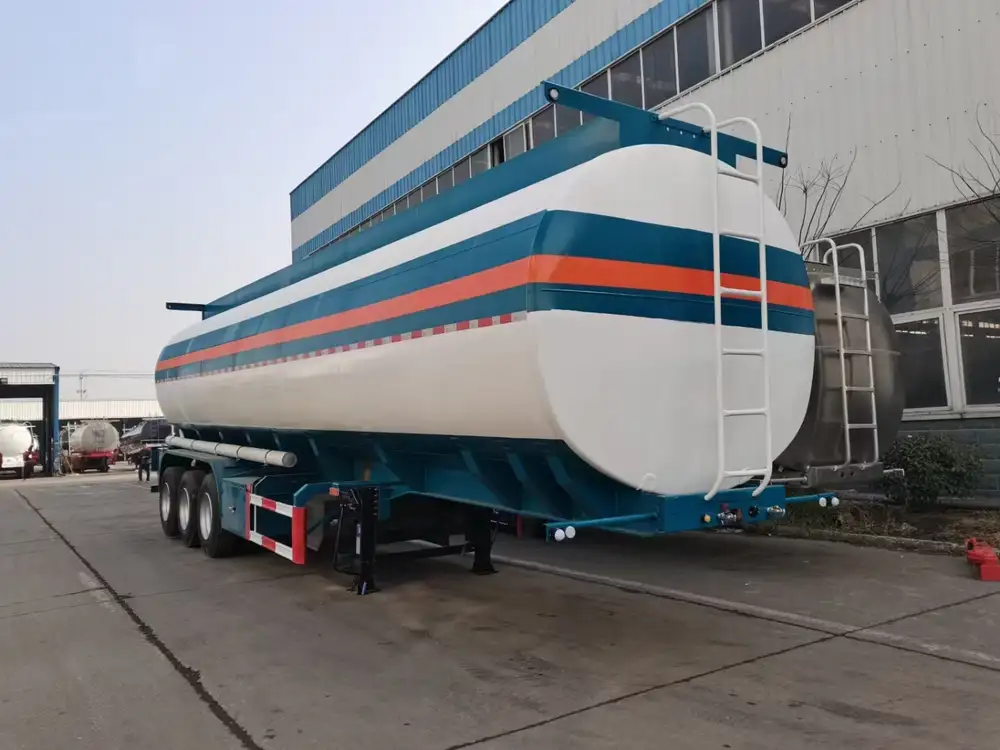In the ever-evolving world of transportation and logistics, the efficiency and durability of a truck are vital components that can significantly impact operational success. For businesses focused on heavy-duty transport within Guinea, source reliability is paramount, particularly for key vehicle components like fuel tanks. To maximize performance and ensure that your fleet operates smoothly, let’s explore the nuances of selecting quality fuel tanks for big trucks available in Guinea.
Why High-Quality Fuel Tanks Matter
Fuel tanks are more than mere containers; they are critical components that directly influence efficiency, safety, and overall performance. In regions like Guinea, where climate conditions fluctuate, and road infrastructure can be challenging, the importance of selecting a robust fuel tank cannot be overstated.
Performance Reliability
The performance of heavy-duty trucks heavily hinges on the integrity and reliability of their fuel systems. A faulty fuel tank can lead to fuel leaks, affecting engine performance and posing environmental hazards. Businesses that choose superior fuel tanks can expect:
- Increased Fuel Efficiency: High-quality tanks minimize waste and enhance overall fuel delivery to the engine.
- Longevity: Durable materials can withstand harsh conditions, leading to lower replacement costs.
- Safety: Rigorous construction standards ensure that fuel tanks resist punctures and leaks.

Key Features to Advise on Fuel Tanks
When considering the purchase of fuel tanks for big trucks in Guinea, several critical features must be taken into account to ensure they meet operational needs.
Material Composition
The manufacturing material of a fuel tank profoundly impacts its durability and functionality. Key options include:
| Material | Advantages | Disadvantages |
|---|---|---|
| Aluminum | Lightweight, corrosion-resistant | More expensive than steel |
| Steel | High durability and strength | Heavier and prone to rust if uncoated |
| Polyethylene | Corrosion-resistant, flexible | Less durable under extreme conditions |
Tank Capacity
Fuel tank capacity should align with the operational demands of your fleet. Tanks come in various sizes, generally ranging from 50 to 200 gallons. The size you select should reflect:
- Distance of Transportation: Longer hauls may necessitate bigger tanks to minimize refueling stops.
- Load Requirements: Carrying heavier loads may demand greater fuel capacity for efficient travel.

Compatibility and Installation
Before making a purchase, it’s crucial to assess whether the fuel tank is compatible with your fleet’s existing infrastructure. Key aspects include:
- Mounting Specifications: Confirm that the tank can be securely mounted and connected to the truck’s systems.
- Regulatory Compliance: Adhere to Guinea’s safety standards and environmental regulations.
The Role of CarMax Vehicle in Fuel Tank Manufacturing
At CarMax Vehicle, we prioritize the needs of our customers. Our fuel tanks for big trucks stand out for several reasons:
Customization
Recognizing that each business has unique requirements, we offer customizable solutions to ensure that our fuel tanks align perfectly with the specific needs of your fleet.

Superior Quality Control
We employ rigorous quality control measures throughout our manufacturing process. Each tank undergoes comprehensive testing and inspection to guarantee:
- Leak-proof Design: Our tanks are designed to prevent fuel leaks effectively.
- Toughness: Withstand rigorous usage and harsh environmental conditions.
Dedicated After-Sales Support
Our commitment to our clients extends beyond the sale. Our dedicated support team is on hand to assist with installation, maintenance, and any operational inquiries, ensuring that you derive maximum value from your investment.
Maintenance Tips for Fuel Tanks
After investing in premium fuel tanks for big trucks in Guinea, maintaining their condition is essential for longevity and performance. Here are some effective maintenance practices:

Regular Inspections
Conduct routine checks for any signs of wear, corrosion, or fuel leaks. Focus areas should include:
- Tank Surface: Look for signs of rust or deterioration.
- Connections and Hoses: Ensure all fittings are secure and leak-free.
Cleanliness
Dirt and debris can contaminate fuel and impede the efficient operation of the engine. Regularly clean the tank’s exterior and ensure that the interior remains free from contaminants.
Fuel Quality
Ensure that only high-quality fuels are used to minimize deposits and maintain engine health. Poor-quality fuel can lead to tank residues that compromise the performance of the engine.

Environmental Considerations
With the increasing focus on sustainable practices, it is essential to consider the environmental impact of fuel tanks. Proper installation and maintenance can mitigate pollution risks associated with leaks. Furthermore, consider:
- Eco-Friendly Materials: Opt for tanks made from recyclable materials.
- Efficient Refueling Practices: Implement practices that minimize spillage at refueling points.
Conclusion
In conclusion, investing in high-quality fuel tanks for big trucks for sale in Guinea is critical for ensuring operational efficiency, safety, and long-term sustainability. By focusing on aspects such as material composition, tank capacity, and compatibility, businesses can make informed decisions that lead to remarkable improvements in their logistics capabilities. At CarMax Vehicle, our commitment to quality, customization, and unparalleled support positions us as your ideal partner in enhancing your truck’s performance.
FAQs

What types of fuel tanks are available for big trucks?
Various types of fuel tanks are available, including aluminum, steel, and polyethylene models, each with distinct advantages and disadvantages.
How can I determine the right tank capacity for my trucks?
The right tank capacity can be determined based on the distance regularly traveled and the weight of the loads typically carried.
How long do fuel tanks last with proper maintenance?
With regular inspections and maintenance, high-quality fuel tanks can last significantly longer, often exceeding ten years, depending on usage conditions.

Is it necessary to comply with regulations when installing fuel tanks?
Yes, compliance with local regulations and safety standards is essential to avoid penalties and ensure safe operational practices.
By adhering to the insights shared in this article, businesses can navigate the complexities of fuel tank procurement and installation, ensuring they secure the best possible solutions for their operational needs in Guinea.













Reviews
There are no reviews yet.